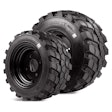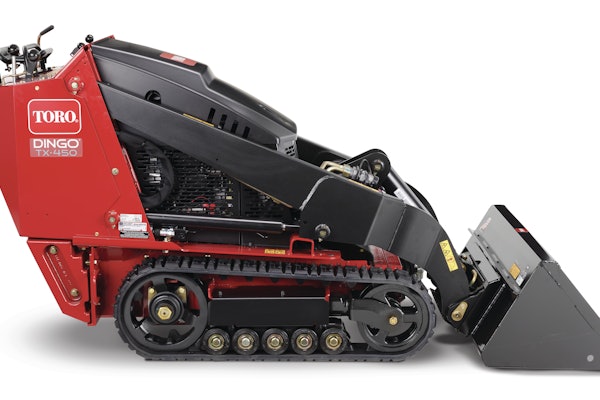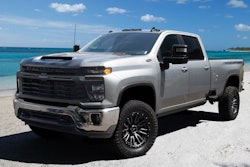Passive regeneration of the DPF eliminates the need to inject diesel fuel into the DPF to oxidize accumulated soot, and results in reduced fuel consumption, reduced thermal cycling of expensive catalysts, and lower operating costs. It also simplifies vehicle operations by freeing the driver from having to keep track of when an active regeneration needs to take place. This freedom increases driver and vehicle productivity, while also reducing operating costs.
This is a huge development for our customers, since their drivers no longer have to monitor DPF status or worry about managing DPF regenerations because a Volvo on-highway truck with SCR will not require active regeneration, said Scott Kress, senior vice president sales & marketing. He added that Volvo has achieved near-zero active regeneration in its vocational applications. Volvo™s advanced SCR technology removes a significant source of the trucking industry™s concerns with emission systems. The truck and driver are more productive, the fleet saves fuel and the environment benefits.
This advance is another demonstration of Volvo™s industry-leading engine and emissions technology, as well as a clear demonstration of the benefits of SCR, Kress said.
Volvo currently has about 30 EPA™10 test trucks in customer fleets operating with over two million miles of operation with no active regenerations. Volvo also has currently about 40 other EPA”10 trucks in operation in its corporate engineering test fleets. In addition, another 23 Volvo trucks in an earlier North American SCR demonstration and test fleet have been driven more than 9 million miles without an active regeneration.
The ability to passively regenerate DPFs depends on having the correct concentration of nitrogen oxides (NOx) in the hot exhaust flowing into the DPF, since the NOx enables passive regeneration. By using SCR to eliminate NOx from the exhaust after it flows through the DPF, Volvo is also able to tune the engine for better fuel efficiency and better performance.
By contrast, in-cylinder methods to decrease NOx for EPA™10, such as massive EGR, reduce fuel economy while also being incompatible with passive DPF regeneration. The need to regularly inject diesel fuel into the DPF further increases fuel consumption, adds complexity to components and systems, increases thermal cycling of system components, and interrupts driver and vehicle operations whenever a parked regeneration is required.
In addition, the ability to reduce fuel consumption by removing DPF active regeneration is further confirmation of Volvo Trucks™ comprehensive efforts to achieve outstanding fuel economy through all aspects of truck design and operation. These efforts are embodied in Volvo™s Fuelwatch initiative. In broad terms, Fuelwatch examines how to optimize and how to operate a truck or a fleet of trucks for maximum fuel efficiency. It is a process that begins before a truck is even ordered, proceeds through the correct specification of the vehicle for its intended use, and continues for the entire operational life of the truck, including training of drivers, and measuring and monitoring tools for fleet managers.
Volvo Trucks North America™s operations and products are guided by the company™s three core values: Safety, Quality and Environmental Care. The Volvo VT, VN and VHD trucks are assembled in the United States at the New River Valley Plant in Dublin, Virginia, while Volvo engines for North America are assembled in Hagerstown, Maryland. Both plants are certified to ISO14001 environmental and ISO9001 quality standards. Volvo also sponsors America™s Road Team, a national highway safety outreach program.
Volvo Trucks North America is part of the Volvo Group, one of the world”s leading manufacturers of trucks, buses and construction equipment, drive systems for marine and industrial applications, aerospace components and services, and one of the world”s leading producers of heavy-diesel engines (9-16 liter). The Group also provides complete solutions for financing and service. The Volvo Group, which employs about 100,000 people, has production facilities in 19 countries and sells their products in more than 180 markets. Volvo Group sales for 2008 amounted to over $46 billion. The Volvo Group is a publicly-held company headquartered in Gothenburg, Sweden. Volvo Shares are listed on Nasdaq OMX Nordic Exchange and are traded OTC in the U.S.
For further information, please contact Jim McNamara, Volvo Trucks North America, phone 336-393-2143, email [email protected]











